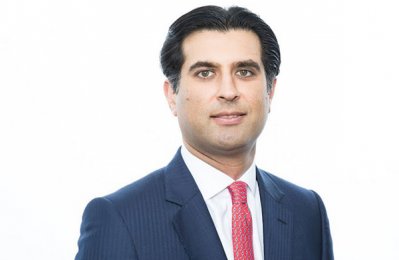Emirates NBD Asset Management reported that the Emirates NBD Saudi Arabia Equity Fund has returned more than 18 per cent year to date (YTD) and grown to a size of over $30 million since launching in December 2017.
The sub-fund is available to investors through Emirates NBD SICAV (Luxembourg) and Emirates Portfolio Management PCC (Jersey).
The fund has been established to tap into renewed investor interest in the Saudi market, which was added to FTSE Russell’s Emerging Market Index at the end of March – a development that is likely to see around $5 billion from global investors allocated to the Kingdom’s equities over the next 12 months.
The MSCI Emerging Market Index is widely expected to follow suit and announce the Kingdom’s inclusion as a constituent in June, providing a further boost to the market. The expected index weighting of Saudi Arabia is approximately2.4 per cent, which could translate into around $40billion of foreign inflows.
Salman Bajwa, senior executive officer at Emirates NBD Asset Management, said: “At a market capitalisation of around $ 500 billion and foreign ownership below 2 per cent, Saudi Arabia is the largest stock market in the world that is yet to be fully accessible to overseas investors. Our investment team offers a decade of proven track record for investing in the Saudi market, and the opportunity to do so within a vehicle compliant with the highest international regulatory standards.
“Our local expertise enabled us to identify this investment opportunity, which led to the conversion of an existing fund to a Saudi-only fund in December 2017. We were fully aware of the constraints and requirements of international investors, and anticipated their needs by establishing one of the few globally available UCITS-compliant Saudi equities funds.”
Emirates NBD Asset Management intends to collaborate with international partners to capitalise on growing investor interest in the Kingdom, meeting increased demand for products and opportunities from both GCC and international investors. The Saudi Arabia Equity Fund aims to provide investors with a managed portfolio of Saudi equities, with the objective of achieving capital appreciation over the medium- to long-term, along with the option of an income-paying share class.
The fund employs an active management style, with a top-down approach to determine sector allocations complemented by a bottom-up approach to select individual securities. Deep market and sector research will exploit price distortions alongside specific opportunities that display potential for strong gains.
Usman Ahmed, managing director, Investments at Emirates NBD Asset Management, said: “The Saudi equities market offers one of the most interesting opportunities across the globe and our position as a local house makes us particularly well-placed to deliver deep insights.
“The market is diversified, with representation across major sectors including financials, petrochemicals, telecoms, healthcare, consumer, industrials and building materials, providing greater depth of opportunity than other GCC markets. There are also several large government-linked companies, such as Saudi Aramco, that may list as part of the Kingdom’s economic diversification and privatisation programme. These collectively present a clear set of opportunities that investors cannot afford to miss.”
“Our latest fund is testament to Emirates NBD Asset Management’s position as a leading player in the region, fusing both local and global expertise,” Bajwa added.
“Our business achieves this position through the introduction of innovative products, created internally or through partnerships with global institutions such as Jupiter Asset Management and UTI International.
“This fund launch, which has already generated over 18 per cent for investors, comes on the back of the Indian equities fund that we launched in Q4 2016, which returned 33 per cent for our clients last year. We remain committed to bringing the most attractive opportunities to our investors, across the retail and institutional spectrum, in both Shari’a compliant and conventional formats,” he concluded. - TradeArabia News Service
ENBD Saudi Equity Fund returns top 18pc YTD

Salman Bajwa

&uuid=(email))